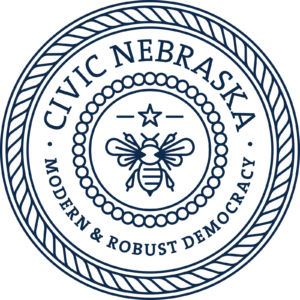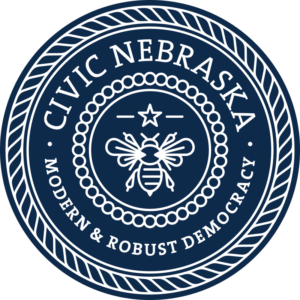According to the American Psychological Association, 60 percent of Americans say the current amount of uncertainty in our nation and the number of issues they face is overwhelming and causes them stress. In addition, the Edelman Trust Barometer and recent Gallup polls demonstrate that people have low faith and confidence in government and social institutions. Along with declining trust, rising uncertainty, and helplessness, many people simply feel left out and left behind. There’s a sense that “the benefits of prosperity are accruing in a narrow group of elites.”
 It’s natural to feel threatened in times of crisis and turn inward to protect ourselves. Recent events make this approach understandable, but they are not productive long-term for people or communities. So much of the world’s woes are things we can’t control – but we can control how we respond to them. And on that front, there is hope.
It’s natural to feel threatened in times of crisis and turn inward to protect ourselves. Recent events make this approach understandable, but they are not productive long-term for people or communities. So much of the world’s woes are things we can’t control – but we can control how we respond to them. And on that front, there is hope.
Because even though more people think this is the “lowest point in our nation’s history” (up from 56 percent in 2019 to 71 percent in 2020), most people (around seven in 10) still say they feel hopeful about their future.
The time is ripe for communities, and the people who live in them, to harness that hope and turn it into action.
All of us – volunteers, community leaders, nonprofits, schools, service club members, business owners, or everyday citizens – must ask ourselves how we can get involved, give back, and make a difference. And more importantly, how can we encourage others to do the same? More people participating in our communities and our country’s civic life is a first step toward regaining some of the lost trust and helping people feel more connected and less “left out.”
A quick search for “how to make a difference” yields more than 1.5 million results, all focused on various ways to get involved, volunteer, and give back. This shows that many people want to do things that matter. But although research shows that more than 90 percent of the general population wants to volunteer, the reality is that only one out of four Americans actually do. There is a disconnect between wanting to get involved and make a difference and the reality of actually doing it.
It’s time to start asking how we can bridge that gap and provide opportunities to do more good in whatever sliver of society we live our lives.
Providing opportunities to do more good is essential for the future of the people, places, and organizations we love. Research shows that people who volunteer “are generous with more than just their time.” Volunteers donate to charity and engage in their communities at much higher rates than non-volunteers. In addition, volunteers more frequently “talk to neighbors, participate in civic organizations, fix things in the community, attend public meetings, discuss local issues with family and friends, do favors for neighbors, and vote in local elections.”
There are also economic benefits to having more people involved in their communities and local nonprofit organizations. According to a recent Volunteering in America report, Americans volunteered nearly 6.9 billion hours, worth an estimated $167 billion in economic value.
These statistics illustrate substantial time, talent, and treasure working for the greater good. And even more impressive is that these numbers represent just a small group of people who contributed these service hours; currently, only 30 percent of Americans volunteer. So, there is room to grow and have an even more significant impact.
People engaged in their communities make them better in so many ways, making it critical that people understand how to get involved and become inspired to do so. For things to get better, people must see themselves as part of the solution and have the tools and opportunities to get started and make an impact. To sustain our democracy, solve local problems, and create a brighter future, we must focus on building community engagement in whatever ways we can.
How can you answer this call to action and help others do the same? Things get better when we take our feelings of frustration and combine them with our feelings of hope, and put them into action.
So, as you begin 2022, ask yourself: What can I do to make something just a little bit better – right now?
Tammy Day of Norfolk is a business owner and an active community philanthropist and change-maker. Her work focuses on innovative approaches to positive community change, such as Daycos4good, the Youth Philanthropy Contest, and the Philanthropy Council of Northeast Nebraska. For more Civic Nebraska Writers Group columns, click here.


